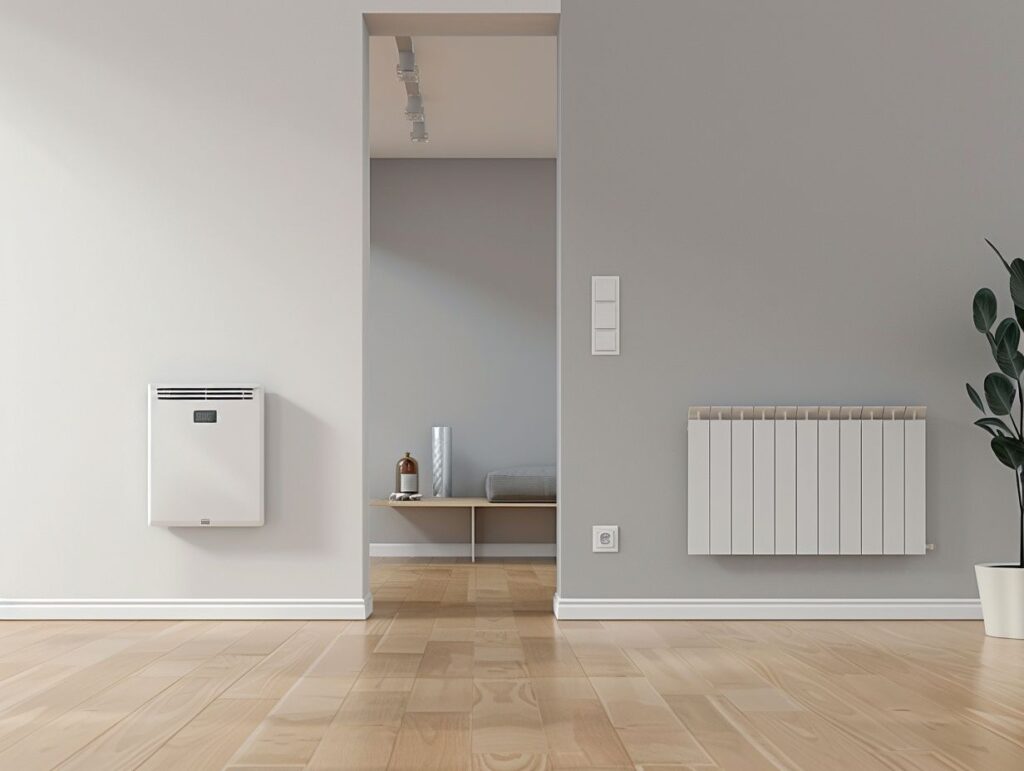If you are contemplating an upgrade to your heating system and are deliberating between dual fuel heating and traditional radiators, this article aims to provide you with a comprehensive comparison of the benefits of each option to facilitate an informed decision-making process.
The analysis will cover aspects such as installation requirements, maintenance considerations, and long-term operational needs, encompassing factors like efficiency, potential cost savings, user familiarity, and system reliability.
By the conclusion of this comparison, you should have gained a clearer insight into which heating system aligns best with your individual requirements and preferences.
Key Takeaways:
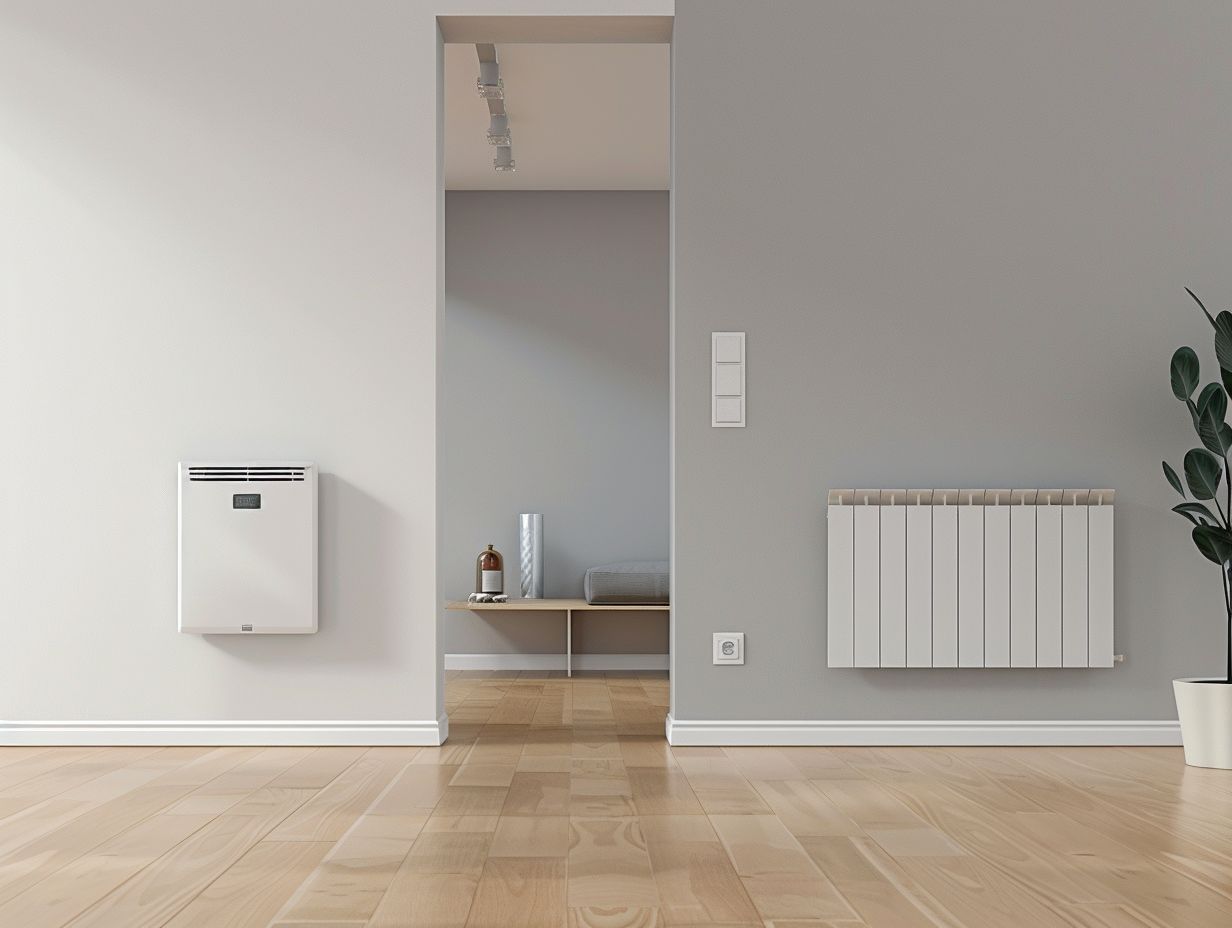
- Dual fuel heating offers improved efficiency and cost savings compared to traditional radiators, making it a popular choice for homeowners looking to save on energy bills.
- Traditional radiators provide a familiar and reliable heating option at a lower cost, making them a preferred choice for those on a budget.
- The decision between dual fuel heating and traditional radiators ultimately depends on various factors, including installation and maintenance costs, long-term needs, and personal preference. Consider these factors carefully before making a decision.
Explanation of Dual Fuel Heating and Traditional Radiators
When exploring heating options for British homes, you may come across dual fuel heating systems and traditional radiators. Dual fuel heating systems offer homeowners the flexibility to switch between electric and central heating as needed, providing a versatile solution in comparison to traditional radiators.
This dual functionality not only ensures efficient heating but also enables cost-effective energy utilisation, particularly during peak usage periods.
On the other hand, traditional radiators are renowned for their simplicity and effective heat distribution, making them a dependable choice for various property types. While dual fuel systems appeal to individuals seeking a balance of convenience and efficiency, traditional radiators are suitable for those preferring a straightforward and established heating solution.
Benefits of Dual Fuel Heating
Dual fuel heating presents numerous advantages, such as cost-effectiveness, energy efficiency, and improved control over heating systems. By merging the benefits of electric and central heating, dual fuel heating offers a versatile and efficient solution for controlling heating expenses and ensuring optimal room temperatures.
Efficiency and Cost Savings
Efficiency and cost savings are significant advantages of dual fuel heating systems. By efficiently heating rooms and optimising energy usage, dual fuel systems can result in notable reductions in energy bills, making them a cost-effective choice for homeowners.
These systems operate by integrating two heating sources – usually a traditional furnace and a heat pump. The dual fuel system automatically transitions between the two sources depending on which is more efficient at the moment.
This responsive functionality ensures effective room heating while minimising energy wastage. The flexibility to choose between gas and electricity as fuel sources offers homeowners options for cost savings, allowing them to select the most economical choice whenever necessary.
Flexibility in Heating Options
Dual fuel heating provides you with flexibility in heating options by allowing you to switch between fuel sources using valves and controls. The installation process often involves incorporating electric radiators alongside traditional central heating systems for optimal heating control.
This versatility enables you to easily transition from using gas to electricity or vice versa, depending on cost-effectiveness or availability. By simply adjusting the valves, you can regulate which fuel source your system operates on, providing you with greater control over energy consumption.
The integration of electric radiators offers you a supplementary heating solution that can be independently controlled to adjust heat levels in specific rooms. This blend of gas and electric heating technologies allows for a customizable and efficient heating experience.
Benefits of Traditional Radiators
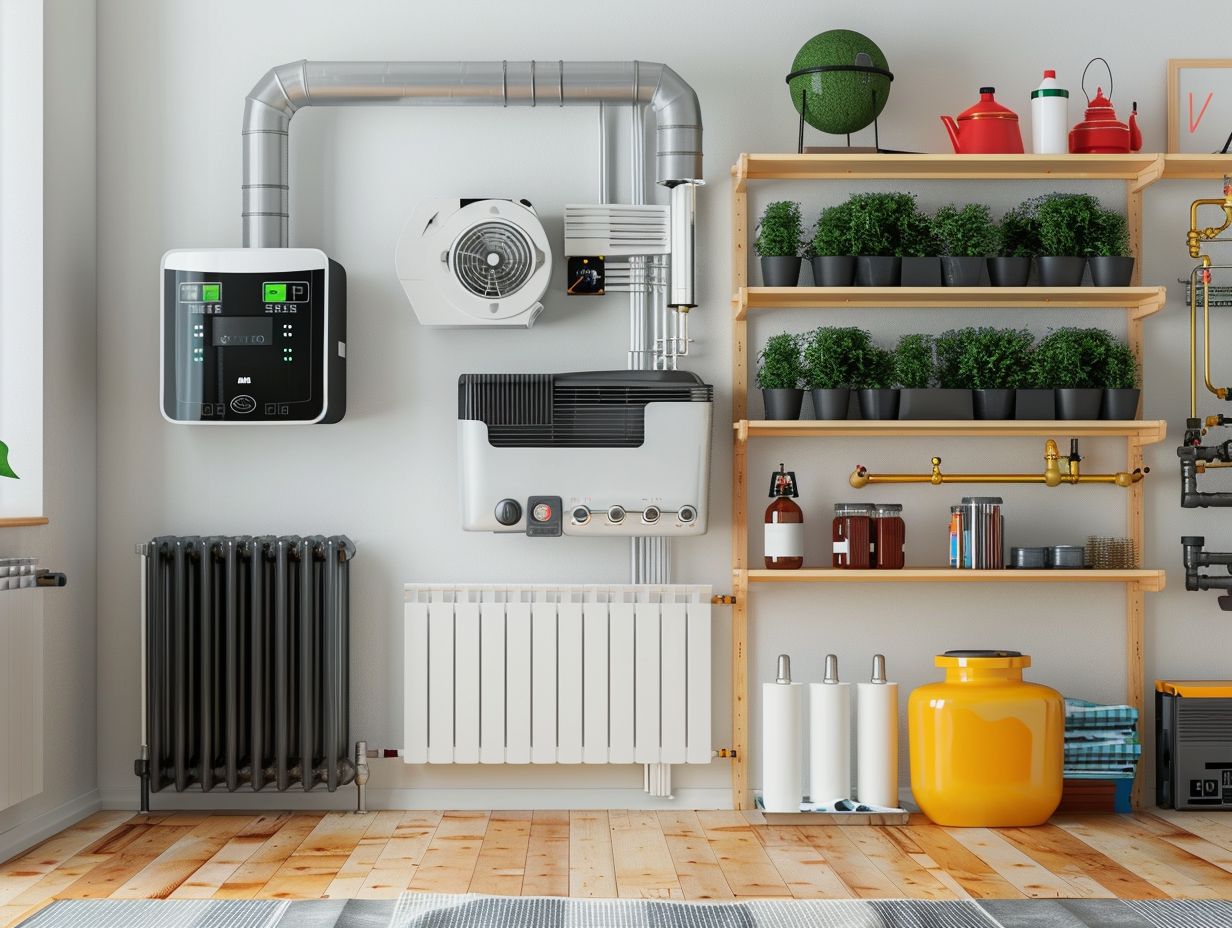
Traditional radiators offer lasting benefits, such as familiarity, cost-effectiveness, and efficient heating for different rooms in British homes. Their dependable performance and simple operation make them a preferred choice in numerous properties.
Familiarity and Reliability
The familiarity and reliability of traditional radiators have made them a staple in British homes and properties. The durable heating elements and robust radiator designs ensure consistent warmth and comfort for residents.
Homeowners have favoured these classic heating fixtures for generations, appreciating the cosiness and functionality they provide. The simple yet effective design of traditional radiators has proven its efficiency in delivering consistent heating throughout various seasons.
Their widespread use in British households speaks to their reputation for reliability and resilience. The ease of maintenance and cost-effective operation further contribute to the enduring popularity of traditional radiators as a home heating solution.
Cost-Effectiveness
You appreciate traditional radiators for their cost-effectiveness, particularly during the cold British winters. Options like electric dual fuel towel rails and towel radiators provide efficient heating solutions that are relatively easy to install and maintain.
The efficiency of traditional radiators in British winters is widely recognised for their ability to heat rooms effectively without consuming excessive energy. Electric dual fuel towel rails offer versatility in installation, as they can be used with both central heating systems and can also function electrically in the absence of central heating.
This flexibility makes them a popular choice for bathrooms and kitchens. Towel radiators offer benefits beyond heating by serving the dual purpose of drying towels, adding functionality to the living space.
Comparison of Installation and Maintenance
When you compare the installation and maintenance requirements of dual fuel heating systems and traditional radiators, factors such as cost, time, and long-term maintenance needs play a crucial role in your decision-making process.
Cost and Time Considerations
Factors such as the type of valves, GT Thermostatic Element selection, and the involvement of an electrician can impact the cost and time considerations during the installation of heating systems.
Valves play a crucial role in controlling the flow of hot water in a heating system. The choice between manual and thermostatic valves can affect both the initial investment and the long-term efficiency of the system. Selecting the right GT Thermostatic Element is essential for ensuring optimal performance and energy savings.
Electricians are required to properly connect and wire the heating system, ensuring compliance with safety standards and efficient operation. Considering these factors and engaging skilled professionals can lead to a smooth and cost-effective installation process.
Long-Term Maintenance Needs
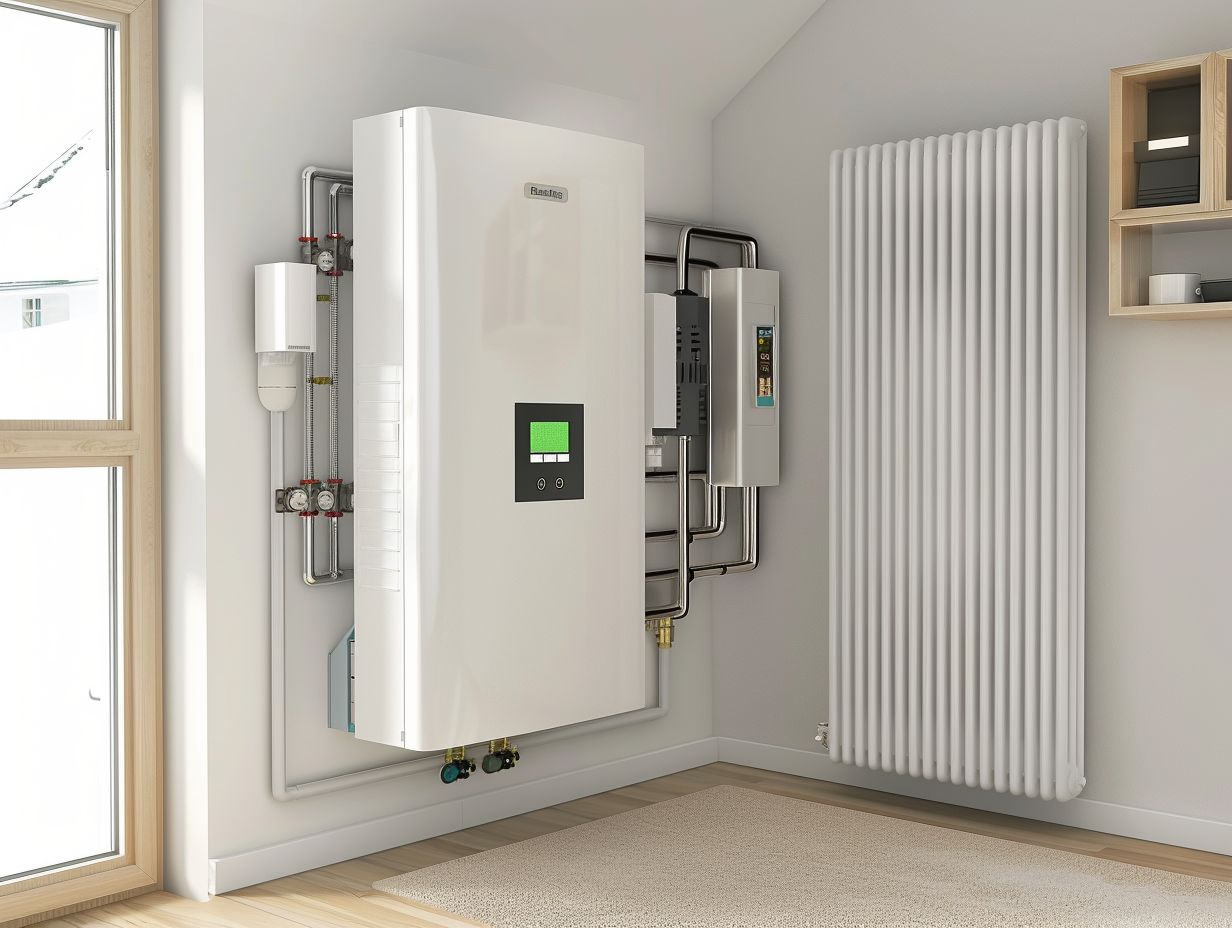
When considering long-term maintenance needs, you should pay attention to factors such as radiator wattage, BTU calculations, and proper clockwise valve adjustments to ensure efficient heating, especially in areas with heavy usage like bathrooms.
For bathroom heating, selecting the appropriate radiator size and material is crucial. Radiators with higher BTU outputs are recommended for larger bathrooms to ensure sufficient warmth.
Regular adjustments of the valves to regulate the flow of hot water through the radiators can help maintain a comfortable temperature in the bathroom. It is essential to monitor the heating system’s efficiency over time and make any required modifications to guarantee optimal performance and energy conservation.
Which Option is Right for You?
When deciding on the appropriate heating option for your property, it is important to assess various factors. These include:
- the type of heating elements
- the prevailing conditions during British summers
- the control mechanisms available
- the amount of wall space that can accommodate the heating system
- the desired level of heat output required to ensure optimal comfort
Factors to Consider
When you are choosing the appropriate heating option, it is important to carefully evaluate factors such as BTU calculations, installation ease, electrical supply availability, valve types, and heating element preferences to ensure you make a suitable and efficient choice.
Regarding BTU calculations, you must thoroughly assess the heating requirements of the space to determine the correct output. Consider the size of the area, levels of insulation, and the desired temperature range.
Installation considerations involve evaluating the available space for the heating system, ventilation needs, and any structural limitations.
Electrical requirements vary depending on the type of heating system selected, with some systems necessitating dedicated circuits.
When deciding on valve types, you should consider factors such as manual or thermostatic control, durability, and compatibility with the system.
Preferences for heating elements may range from traditional radiators to more modern underfloor heating systems.
Frequently Asked Questions
What is the difference between dual fuel heating and traditional radiators?
Dual fuel heating systems allow for both electric and water-based heating, while traditional radiators only use water-based heating.
Which one is more energy-efficient?
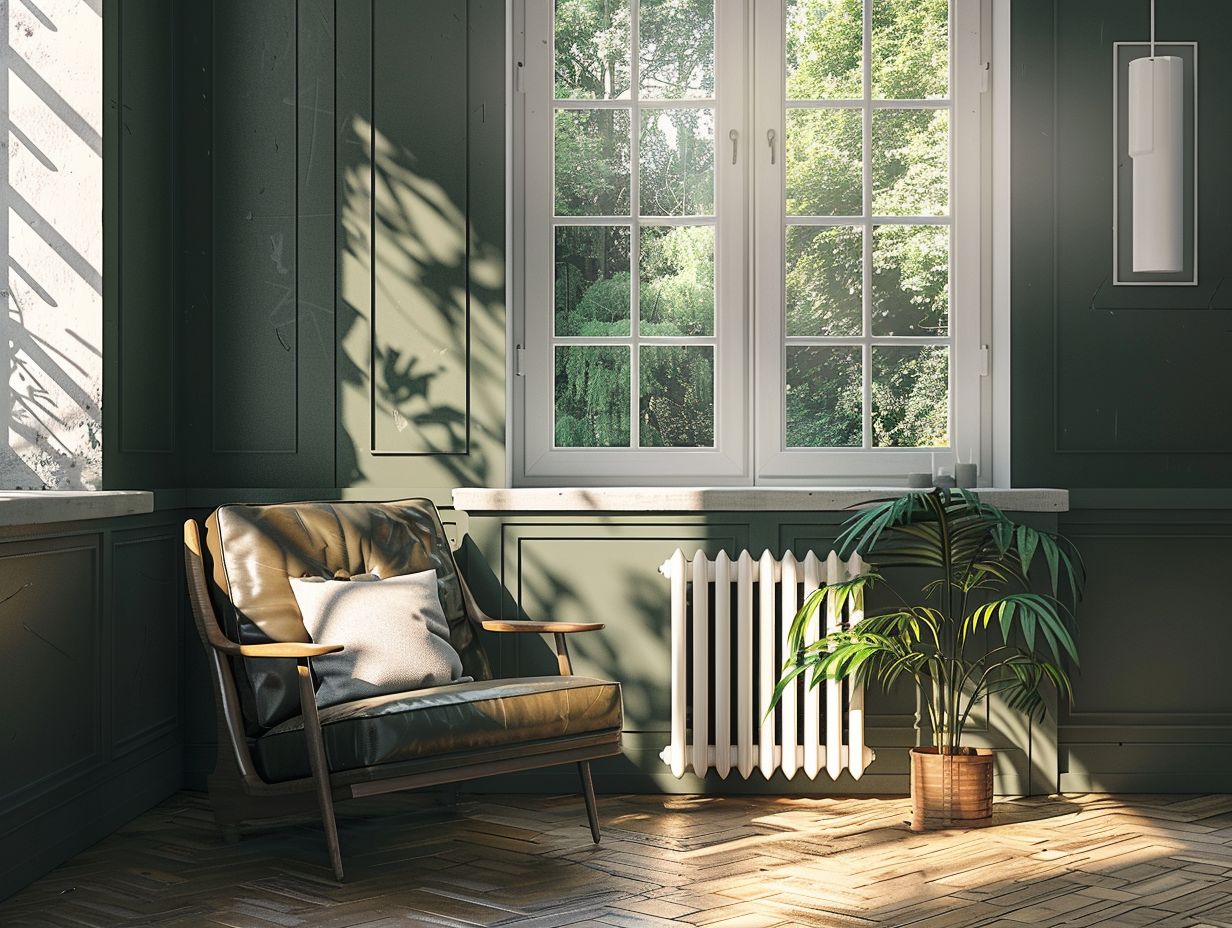
Dual fuel heating has the potential to be more energy-efficient as it allows for the use of electric heating during off-peak hours when electricity rates are lower.
Do dual fuel heating systems cost more to install?
Yes, dual fuel heating systems do tend to have a higher upfront cost due to the need for additional equipment and installation expertise.
Can I upgrade my traditional radiators to dual fuel heating?
In most cases, yes, it is possible to upgrade your traditional radiators to a dual fuel heating system. However, it may require some modifications to your current heating setup.
What are the benefits of using dual fuel heating?
Dual fuel heating allows for more flexibility and control over your heating system, potentially leading to energy and cost savings. It also allows for zoned heating, meaning you can heat different areas of your home to different temperatures.
Are there any disadvantages to using traditional radiators?
Traditional radiators can be less energy-efficient and may not provide as much control over heating compared to dual fuel systems. They also tend to take up more space and can be less aesthetically pleasing.

